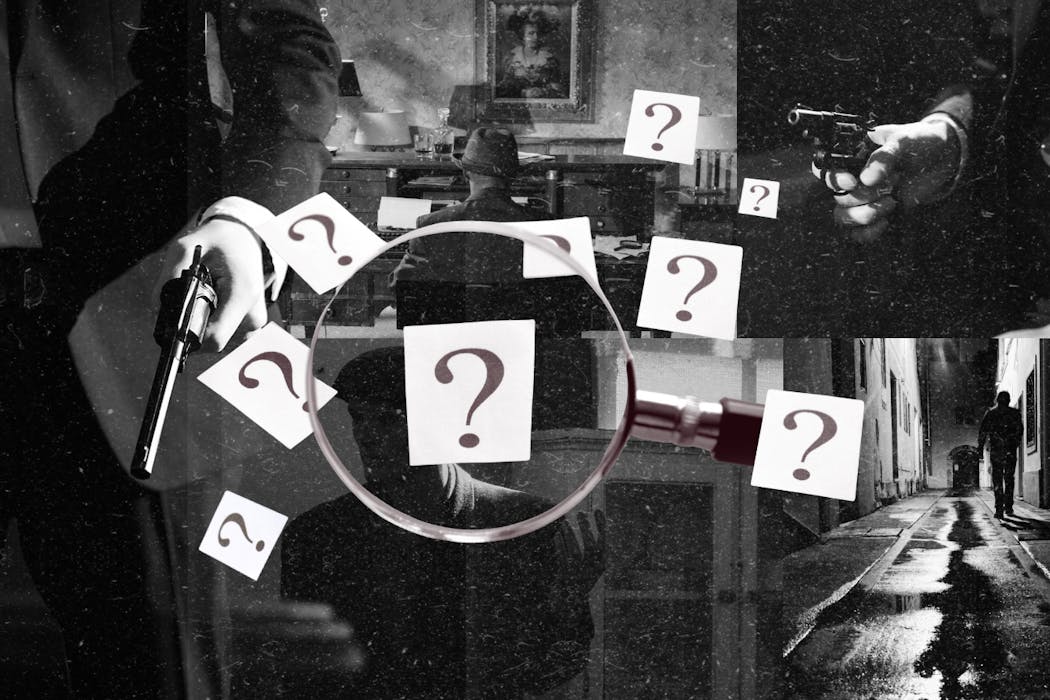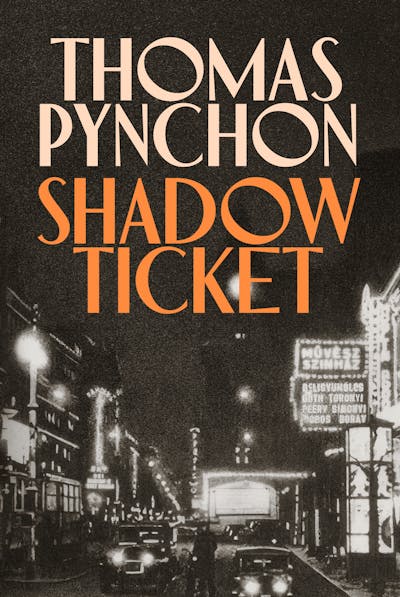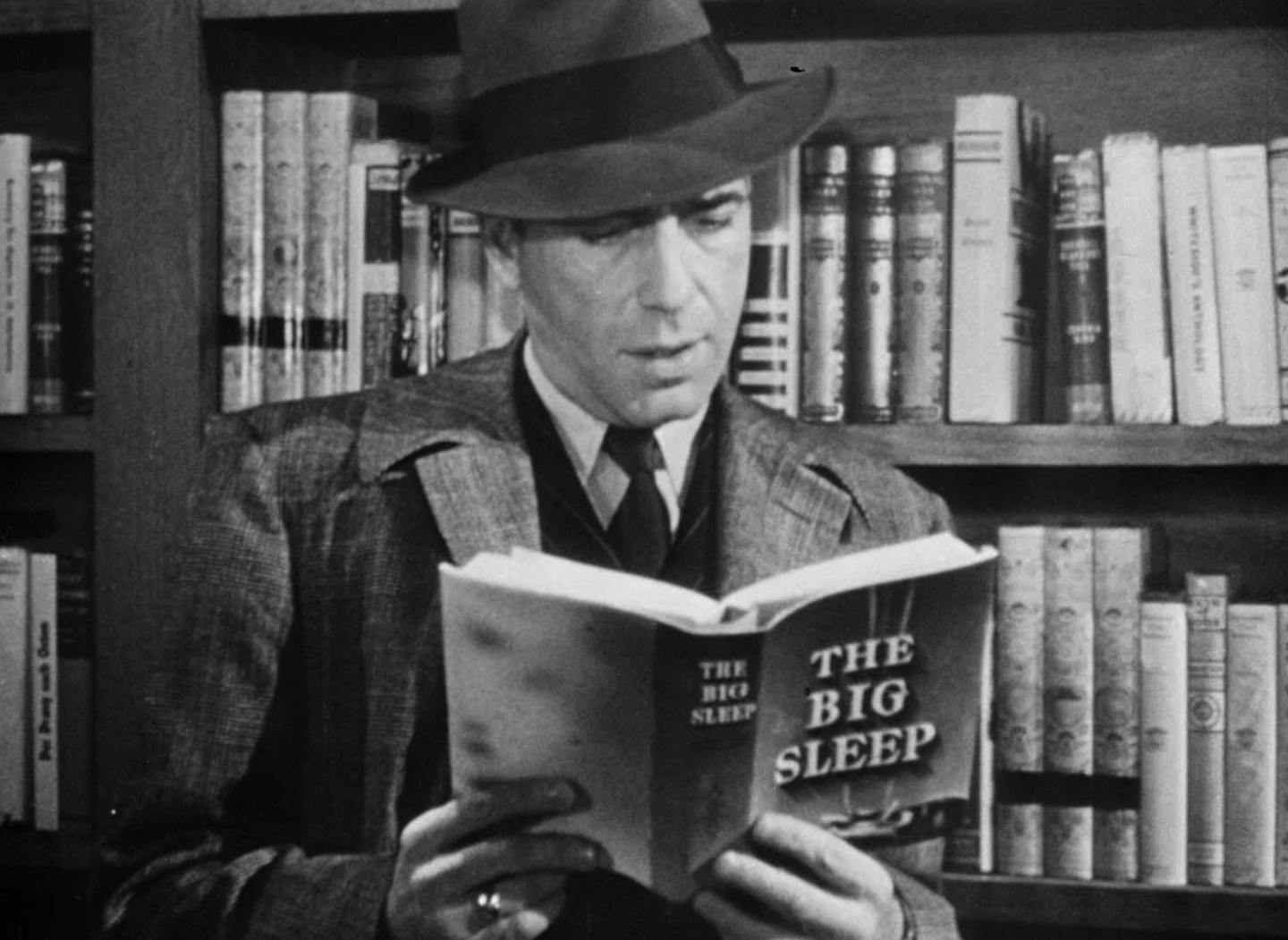
Maybe you’ve felt, in recent times, that the world has become a more uncertain place.
Conflict, change, crisis. Political chancers and snake-oil salesmen crowding the public stage. Extremists and ideologues tugging at the already frayed fabric of civil society. Modern-day robber barons cosplaying at philanthropy, cosying up to whichever demagogue happens to be closest to hand. Transnational conglomerates growing larger, richer and impossibly powerful – minute by minute, hour by hour, day by day. Everything speeding up and spinning out of alignment.
Try as you might, you can’t quite put your finger on what’s transpiring. You begin to wonder how we got here. You can see the pieces, but you’re not quite sure how they fit together. Or, for that matter, what the finished puzzle should look like. For all you know, it could be something truly horrific.
And that is when the paranoia starts to creep in. It isn’t necessarily the garden-variety, tinfoil-hat-wearing kind. It is more the nagging sense that there must be a reasonable way to explain all of this.
Review: Shadow Ticket – Thomas Pynchon (Jonathan Cape)
If any of that rings a bell, Thomas Pynchon is the author for you. Not because his books offer easy explanations or comforting resolutions, but because they so adroitly capture the sensation of what it feels like to live amid such chaos and confusion – to grasp intuitively that the world is being run, and badly run at that, by invisible forces just beyond our comprehension and control.
This goes a long way toward explaining what’s occurring in his comedic and sinister new novel, Shadow Ticket. It also offers us a handy way of making sense of it. His first book in over a decade, the excellent Shadow Ticket is, on the face of it, an old-fashioned piece of detective fiction.
An informal trilogy
Shadow Ticket is the likely final instalment in an informal trilogy, following Inherent Vice (2009) and Bleeding Edge (2013). It continues Pynchon’s longstanding interest in the crime novel. Inherent Vice recast the sun-bleached sprawl of Los Angeles as a paranoiac fever dream, unfurling as the late 1960s give way to the 1970s, while Bleeding Edge pursued a tech-world fraud investigator through the moral murk of pre-9/11 New York.

Like those novels, Shadow Ticket mobilises the tropes of the detective genre: the gumshoe narrator, the wisecracking dialogue, the parade of shady characters and scarcely believable coincidences. Almost everyone talks as if they’ve stepped out of a Dashiell Hammett story.
In the same breath, however, Pynchon twists and torques these conventions to his own ends, using them to show how corrupt systems of power feed on confusion and concealment.
Set in 1932, at the height of the Great Depression, the novel opens in Milwaukee, a city of speakeasies and swing music, punctuated by the occasional explosive burst of violence. The city is abuzz with scuttlebutt about a spate of recent bombings – acts blamed on anarchists, labour agitators or the local mafia, depending on who’s doing the talking.
Our hero is Hicks McTaggart. A former strikebreaker with a penchant for the dance floor, Hicks gave up the life of salaried violence after coming close to beating a “four-eyed troublemaker” to death. He now earns his keep, with varying degrees of success, as a private detective.
An early chapter finds Hicks at a crime scene on the south side of the city, trying to get a grip on the mayhem that surrounds him. He is chasing down tips about what is being referred to as an “Infernal Machine of Presumed Italian Origin”.
But this is only one narrative thread among many. One trail takes Hicks to a fascist youth club operating out of a Milwaukee beer hall. Another points him in the direction of rumours about “an unsurrendered Austro-Hungarian submarine” hidden somewhere beneath the surface of Lake Michigan.
A vaguely Humphrey Bogart-eseque creation who will be familiar to readers of Raymond Chandler and fans of film noir, the hardboiled Hicks McTaggart is an oversized “ape with a light touch. The light touch fools women into thinking he’s sensitive, which he isn’t.”

The Al Capone of cheese
Not long after we are introduced to him, Hicks is tasked with tracking down a certain Daphne Airmont. The missing Daphne is, we soon discover, a famous heiress. Not just any heiress, mind. No, she is the only daughter of Bruno, an enigmatic dairy magnate – “the Al Capone of Cheese” – whose empire stretches from the windswept shores of the Midwest to the storied streets of Vienna.
Hicks does some digging. What begins as a routine case – if such a thing can be said to exist in the pages of a Pynchon novel – soon blooms into an affair infinitely stranger and more satisfying. He learns that cheese theft is rampant, a real global problem – and possibly the reason for Daphe’s disappearance.
Hicks, like the reader, is left wondering what is going on. Pynchon’s narrator is helpfully on hand to fill in some of the blanks:
Cheese Fraud being a metaphor of course, a screen, a front for something more geopolitical, some grand face-off between the cheese-based or colonialist powers.
Before Hicks can make sense of any of this, he is knocked unconscious. When he comes to, he is on a booze-filled cruise liner bound for Europe, though how he got there remains a mystery:
About all Hicks can recall is having what he thought was a harmless beer, which in fact turned out to’ve been visited by a needle full of something in the chloral hydrate family, sending him off to dreamland before he could remember how to find a coaster to set his glass on.
While onboard, he falls in with a pair of romantically volatile travellers – Glow Tripforth and Porfirio del Vasto – and makes the acquaintance of Alf and Philippa “Pip” Quarrender, who, as it turns out, are agents working for British military intelligence.
Glow and Porfirio alight at Tangiers. Time seems to lose all meaning. Hicks, “nodding in and out of slumber”, finds himself sitting on a train. When it stops at Belgrade, he disembarks with the Brits, who, having received an urgent wire from London, take their leave:
Out the door, onto the platform, off into early Yugoslavian night, as a new and slippery customer arrives to replace them, introducing himself as Egon Praediger, International Criminal Police Commission, flipping open a leather ID holder, “We happen to be headquartered in Vienna, though our remit covers the continent.”
The portrait Praediger, who is not necessarily who he claims to be, paints of Europe is a truly baleful one. Hitler, lest we forget, is mere months away from seizing power in Germany. Praediger speaks darkly of 1932 being the year
when it all begins to come apart, not only with fear but desire. Desire for what has almost arrived, deepening over us, a long erotic building before the shuddering instant of clarity, a violent collapse of civil order which will spread from a radiant point in or near Vienna, rapidly and without limit in every direction, and so across the continents, trackless forests and unvisited lakes, plaintext suburbs and cryptic native quarters, battlefields historic and potential, prairie drifted over the horizon with enough edible prey to solve the Meat Question forever.
Knowingly overblown, kinetically charged, gloriously inscrutable – this is vintage Pynchon. The prose style that teeters, deliciously, somewhere between parody and prophecy.
From here, the novel ventures further into a world of spectral politics and occult science, where dogma and paranoia reign supreme. Stalin, we are told, is secretly funding paranormal research. Jew hunters roam the landscape. Fascists are congregating at the borders. Europe is perched on the brink, while forces seemingly beyond anyone’s command – political, industrial, psychic – are beginning to stir.
What does this have to do with counterfeit cheese and missing heiresses? That, as ever with Pynchon, is part of the pleasure – as well as the point.
As with Inherent Vice and Bleeding Edge, the plot of Shadow Ticket unfolds in a moment of profound historical dislocation. Each novel in this unofficial series offers a snapshot of a society on the precipice – whether it’s the fading counterculture of the 1960s, the dot-com delirium of turn-of-the-century New York, or, here, the crumbling democracies of interwar Europe.
With Shadow Ticket, Pynchon reminds us that the line between chaos and order, corruption and truth, remains as thin, porous and perilous as ever. It was a crime of Pynchonian proportions – though not exactly a surprise – that he didn’t win this year’s Nobel Prize.
This article is republished from The Conversation, a nonprofit, independent news organization bringing you facts and trustworthy analysis to help you make sense of our complex world. It was written by: Alexander Howard, University of Sydney
Read more:
- Scary stories for kids: Watership Down made me aware of my mortality at age four
- The Life of Violet: three unearthed early stories where Virginia Woolf’s genius first sparks to life
- The daring women artists of last century were often sidelined as muses. A new book celebrates their brilliance
Alexander Howard does not work for, consult, own shares in or receive funding from any company or organisation that would benefit from this article, and has disclosed no relevant affiliations beyond their academic appointment.


 The Conversation
The Conversation
 WMUR Politics
WMUR Politics America News
America News ESPN Cricket Headlines
ESPN Cricket Headlines Raw Story
Raw Story Tribune Chronicle Sports
Tribune Chronicle Sports Women's Wear Daily Retail
Women's Wear Daily Retail CBS News
CBS News The Week
The Week Atlanta Black Star Entertainment
Atlanta Black Star Entertainment